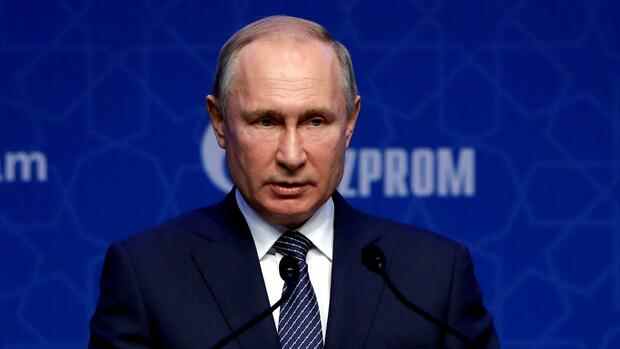The EU countries recently obtained a large part of the gas from Russia.
(Photo: Reuters)
Brussels The European Union obtains 40 percent of its gas requirements from Russia. In view of the war of aggression against Ukraine, the question now arises: Can the international community do without Russian gas in order to prevent money from flowing into Russian President Vladimir Putin’s war chest?
Four energy experts from the Brussels think tank Bruegel have now investigated this. The authors of the renowned think tank conclude: “If the EU is forced or willing to bear the costs, it should be possible to replace Russian gas as early as next winter without destroying economic activity, freezing people or the power supply is interrupted.”
But a lot of money would have to be spent quickly for this. In addition, dozens of regulations would have to be revised, as would usual procedures and processes. “Hard decisions have to be made. In many cases, the time for perfect answers will be too short,” the authors write.
First of all, the EU should fill the gas storage facilities as quickly and as much as possible. They are currently at an all-time low in Europe. This is mainly due to the behavior of the Russian gas company Gazprom.
Top jobs of the day
Find the best jobs now and
be notified by email.
While the storage facilities of other operators are still 44 percent full, those operated by Gazprom are only 16 percent full. Most likely on purpose to further increase Europeans’ dependence on Russia for gas.
More background on the impending energy crisis:
The problem: Filling the gas storage tanks quickly is an expensive affair. Gas prices are at record levels. “Private companies will be reluctant to buy gas at the current high prices, as they may only have to sell it at significant losses if Russia floods the market with gas again and prices fall,” the Bruegel analysts write.
They are therefore calling on the EU to financially protect companies that store gas against high losses. In concrete terms, “contracts for difference would be conceivable, with companies paying back the difference if prices fall below 70 euros per megawatt hour (MWh) next winter.”
Europeans still need to reduce their gas needs
The EU should make the gas purchases together and distribute them fairly within the community of states in order to prevent a bidding war between the states and thus not to drive prices up even further. “This can take the form of a task force,” the study authors suggest. In addition, everything must be done on the political side to get many additional quantities of liquefied natural gas LNG.
Despite these proposals to spend a lot of money quickly to increase gas imports, one serious problem remains: How is the gas supposed to get to each individual EU country? A lot has happened in recent years to better network the European gas market. Nevertheless, especially in the east, the infrastructure is designed so that the majority of the gas comes via Belarus or Ukraine and not from Western Europe.
The necessary infrastructure for increased LNG imports does not exist either. The study does not go into detail about this problem, the authors only write that technical problems should be identified and fixed as soon as possible.
Although the analysts are positive that the EU could survive the winter of 2022/23 without Russian gas, they still come to the conclusion that demand must fall through “extraordinary measures”. For example rationing.
There is no other way. But: “They would send a signal of united European resistance,” write the authors.
More: Filled with natural gas: Nord Stream 2 pipeline is left to its own devices.
